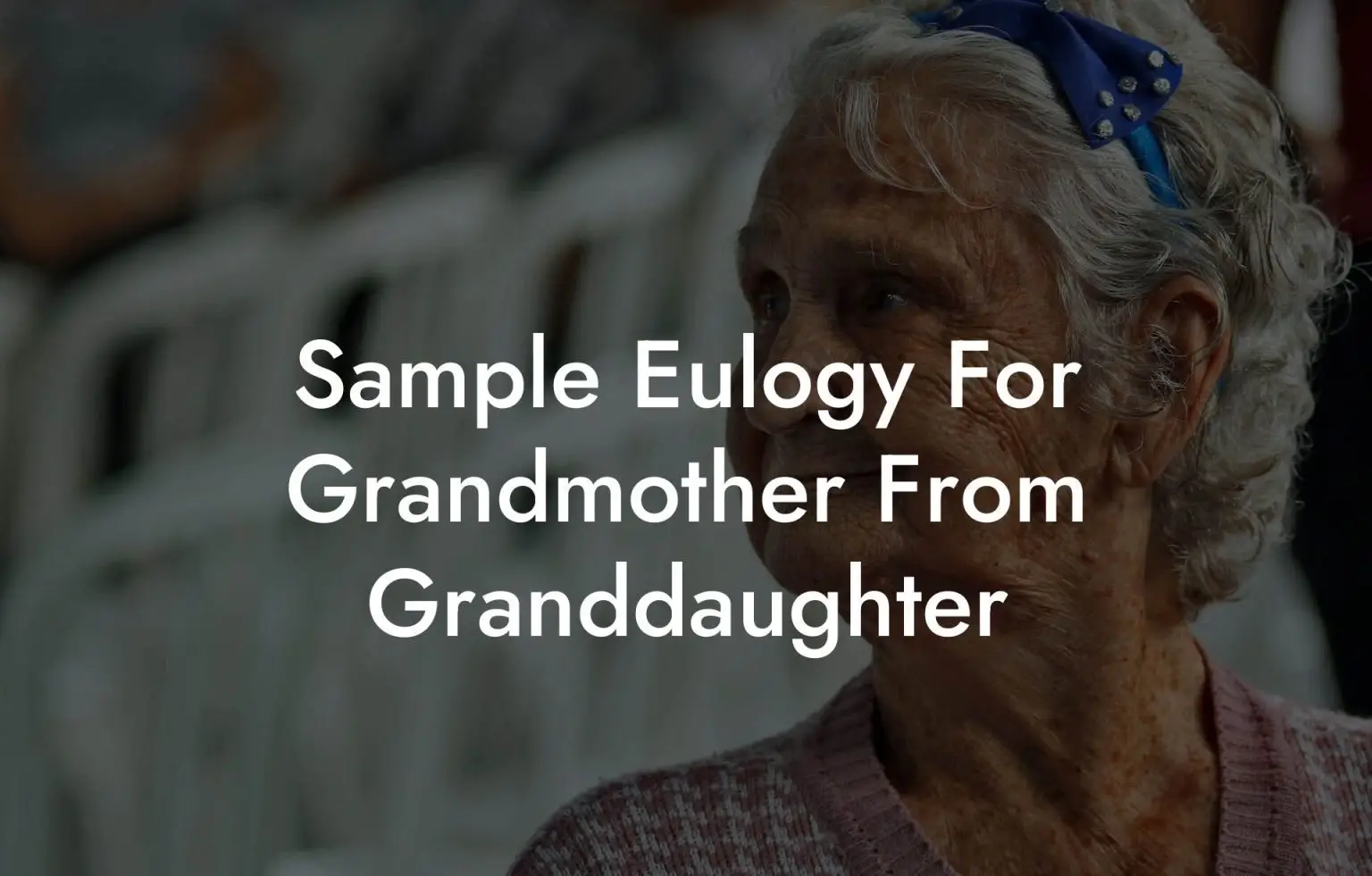Crafting a Strong Eulogy Ending: How to End a Eulogy with Grace and Meaning
Writing a eulogy is a deeply personal and emotional task, and how to end a eulogy can be one of the most challenging aspects of the process. The conclusion of your eulogy is your final opportunity to honor the life and legacy of the person you are speaking about, and it’s essential to leave the audience with a sense of closure, comfort, and lasting remembrance. Ending a eulogy in a meaningful way can bring the ceremony to a heartfelt close, offering solace to those who are mourning while celebrating the life that was lived.
Here are some tips to help you end your eulogy with grace and meaning:
Reflect on the Legacy of the Departed
When thinking about how to end a eulogy, one of the most impactful ways is by focusing on the legacy of the individual. Highlight the core qualities that defined their life, such as their kindness, sense of humor, or dedication to their family. Emphasize the ways in which their contributions will continue to resonate in the hearts of those left behind. Reflecting on these attributes will not only provide comfort but will also remind everyone of the positive impact the person had on the world.
For example, you might conclude with a phrase such as, “Though is no longer with us, the lessons they imparted, the laughter they shared, and the love they gave will remain with us forever.”
Offer a Personal Reflection
Another powerful way to end a eulogy is by offering a personal reflection or anecdote that illustrates the profound connection you shared with the departed. This creates an emotional and heartfelt closing that resonates deeply with your audience. You can speak about a moment or memory that encapsulates the essence of the person and what they meant to you personally. A personal reflection allows the audience to feel the emotional depth of the eulogy, bringing a sense of closure and connection to the speaker’s words.
An example might be, “I will always remember the way made me feel during our time together, and I find comfort knowing that those cherished moments will live on in my heart.”
Express Gratitude and Appreciation
Expressing gratitude at the end of a eulogy is a beautiful and meaningful way to close. Thank the departed for the gifts they gave to the world, to their loved ones, and to you personally. This sense of gratitude can bring peace to those who are grieving, offering them a sense of reassurance that the life of the person being honored was one of meaning and purpose. Acknowledging the person’s life and what they provided to others serves as a fitting conclusion to the eulogy.
For instance, “We are forever grateful for the time we had with , for the love they shared, and for the positive impact they made on everyone they encountered.”
Invite the Audience to Reflect Together
Ending a eulogy with an invitation for the audience to reflect on their own memories and experiences with the person can be a powerful way to bring the ceremony to a close. This encourages a sense of unity among those mourning, as it allows everyone to share in the collective grief and celebration of the departed’s life. You might invite everyone to take a moment of silence or think about the qualities they most admired in the individual.
For example, “As we gather here today, let us take a moment to reflect on the many ways touched our lives and left us with beautiful memories that will last a lifetime.”
Close with a Final Thought or Blessing
Sometimes, the simplest and most graceful way to end a eulogy is by offering a final thought or blessing. This could be a quote, a religious passage, or a heartfelt sentiment that encapsulates the message of the eulogy and brings comfort to those who are grieving. Closing with a blessing can offer a sense of peace and hope for those left behind, reminding them that the departed’s journey is now complete, and they are in a better place.
A fitting way to end might be: “May rest in peace, and may we all find solace in the knowledge that their love and spirit will continue to guide us.”
Conclusion
Ending a eulogy with grace and meaning can be challenging, but it is one of the most significant parts of the entire process. By reflecting on the legacy of the departed, offering a personal reflection, expressing gratitude, inviting collective reflection, or closing with a blessing, you can create a meaningful conclusion that honors the life of the person who has passed while providing comfort and closure to those who are grieving. No matter which approach you choose, remember that the most important thing is to speak from the heart, as that is what will resonate most deeply with everyone in attendance.
By following these tips on how to end a eulogy, you can offer a powerful and emotional closure to a difficult moment, providing peace for those who mourn while celebrating the life of the individual who has passed.













Post Comment